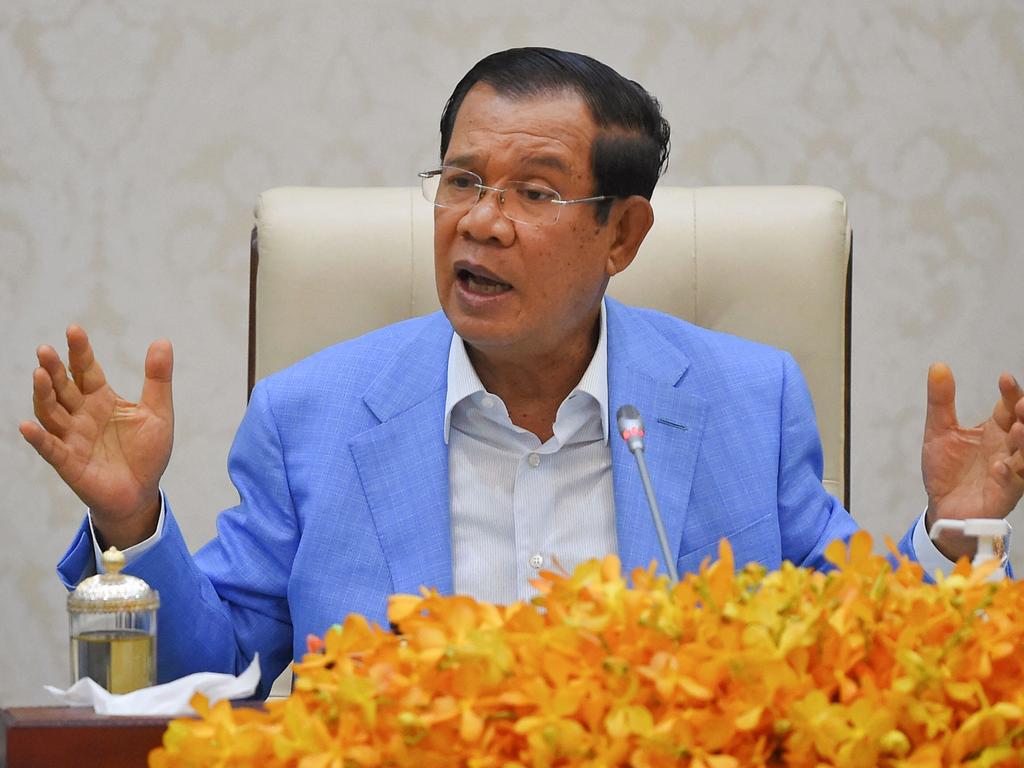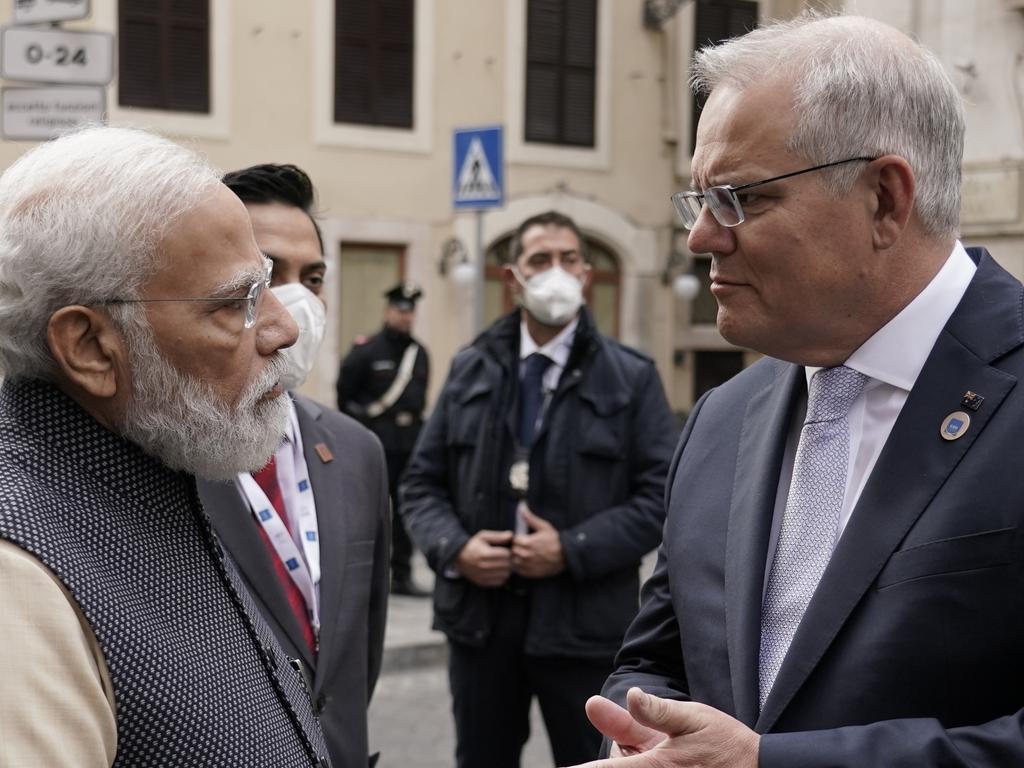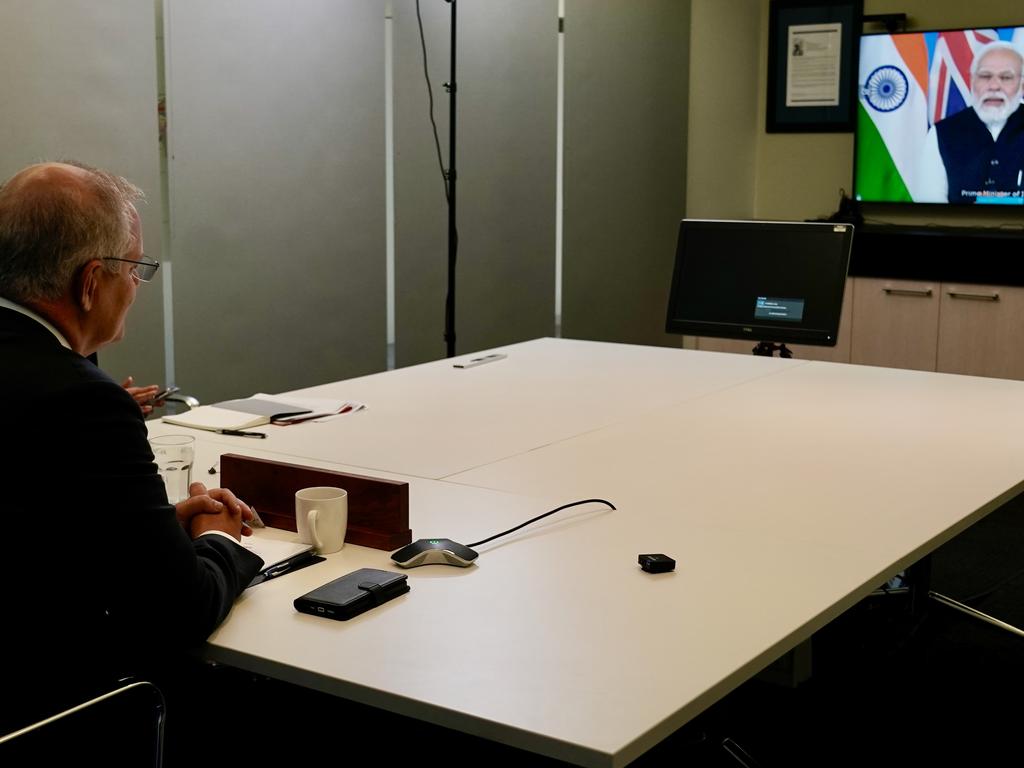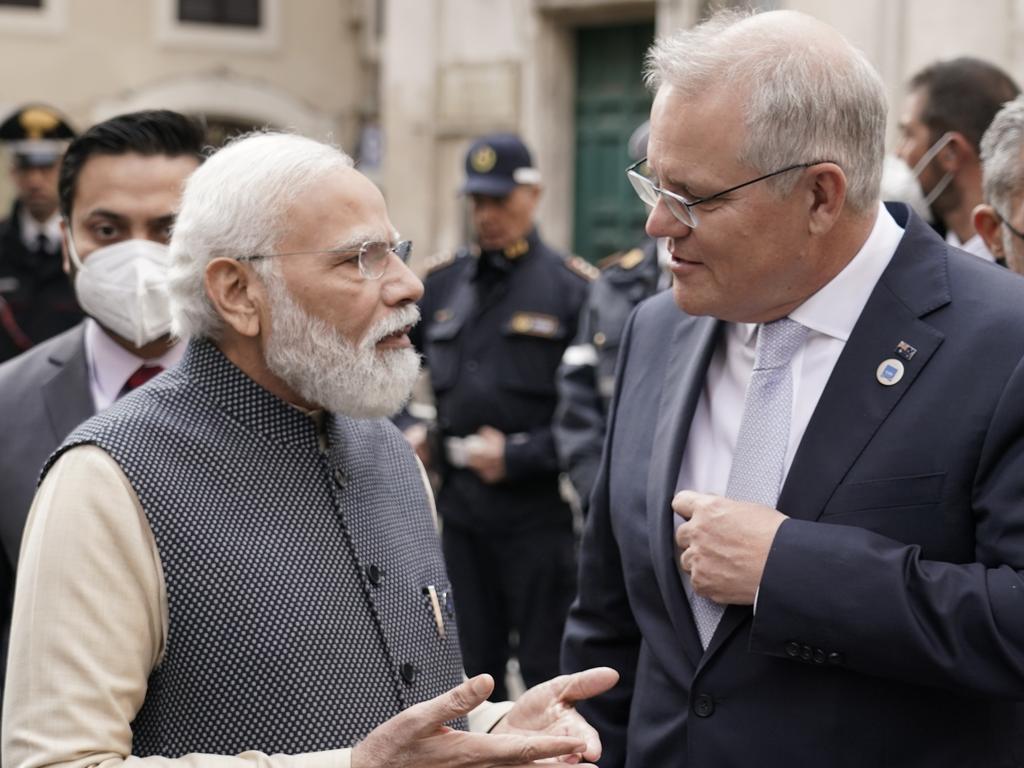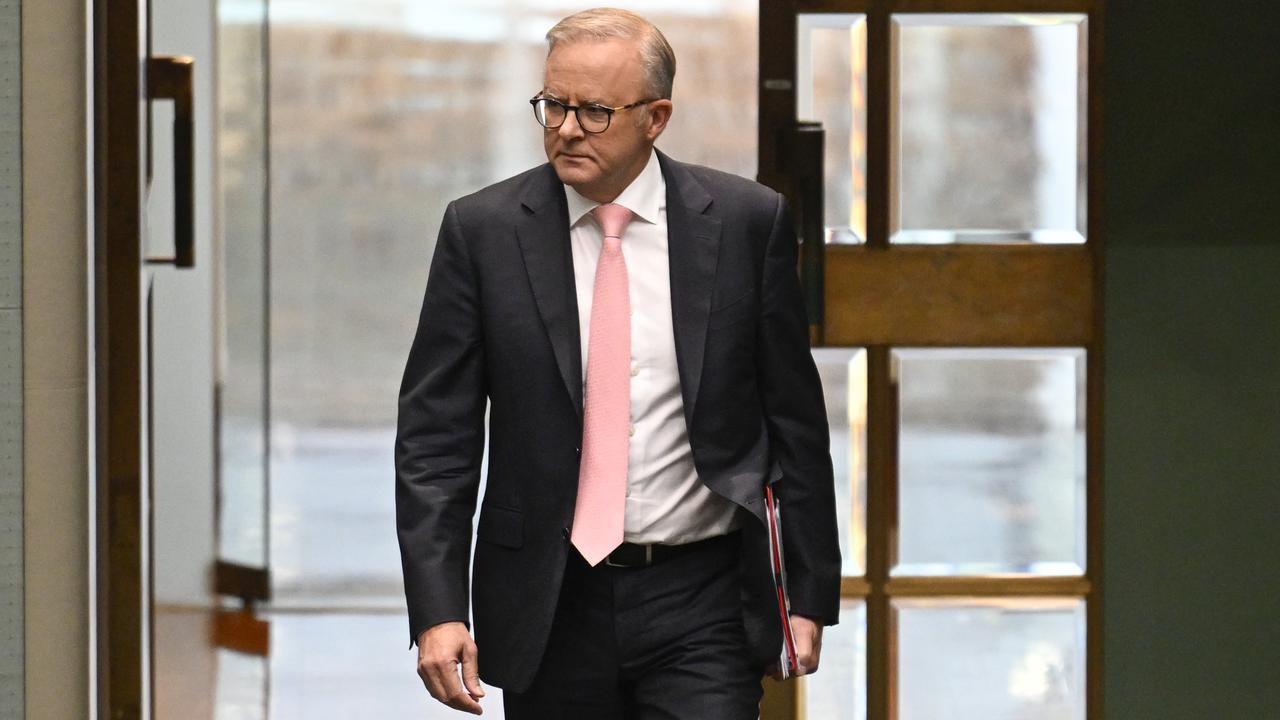New India free-trade deal to ease industries’ China pain
Tariffs on a range of Australian exports to the world’s fastest-growing major economy will be removed or slashed in landmark deal
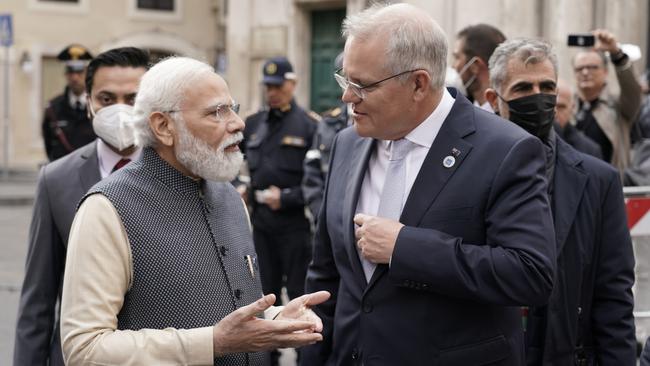
Australia and India will sign a landmark free-trade deal on Saturday, removing or slashing tariffs on a range of Australian exports to the world’s fastest-growing major economy.
The breakthrough, which is expected to boost exports to India to at least $45bn by 2035, has been hailed as a sign of a closer relationship between New Delhi and Canberra.
Under the Australia-India Economic Cooperation and Trade Agreement, industries hit by China’s trade sanctions over the past two years, including wine and coal, benefit from the easing of tariffs as both countries aim to reduce dependence on Beijing.
Trade Minister Dan Tehan, writing for The Australian, said the pact signified greater unity between Australia and India from a grassroots community level to the stronger personal connections at the highest levels of government.
“It was the joint encouragement from Prime Ministers (Scott) Morrison and (Narendra) Modi that gave the process the impetus to reach today’s historic milestone,” he said.
Mr Tehan revealed that securing the deal had attracted significant attention from his counterparts in the UK, US and Canada, who had all reached out to understand how the pact was achieved.
He said the agreement would “turbocharge our close, longstanding and highly complementary economic relationship in areas such as professional services, education and tourism”.
“Both countries will facilitate the recognition of professional qualifications, licensing, and registration procedures between professional services bodies,” Mr Tehan said.
Australia will also open up its Work and Holiday Maker program as part of the deal and allow about 1000 Indians a year to participate.
Mr Tehan said that, although the deal was negotiated as an interim agreement, it was “substantial and as such will be notified as a free-trade agreement with the World Trade Organisation”.
“Australians will benefit from this trade deal, and we will also benefit from a stronger India,” the minister said.
The deal has been more than 10 years in the making, with Australia and India locked in discussions since 2011. Nine rounds of negotiations took place up until 2015 when efforts were suspended. The talks resumed last year.

Despite India’s concerns that Australian agricultural exports could threaten its domestic industry, which accounts for almost half of the Asian giant’s total employment, the deal included key agricultural industries such as sheep meat and wool.
The agreement is expected to lead to Australian exports to India growing to at least $45bn by 2035 and lift India from Australia’s seventh largest trading partner to one of the top three. It follows China slapping a number of sanctions on Australian products, causing exports to Beijing to fall by more than $5.4bn over the year to 2021.
Scott Morrison said the agreement with India would create “enormous” trade diversification opportunities for Australia and “open a big door” to the world’s fastest-growing major economy.
“By unlocking the huge market of around 1.4 billion consumers in India, we are strengthening the economy and growing jobs right here at home,” the Prime Minister said. “This is great news for lobster fishers in Tasmania, wine producers in South Australia, macadamia farmers in Queensland, critical minerals miners in Western Australia, lamb farmers from NSW, wool producers from Victoria and metallic ore producers from the Northern Territory.”
Australia’s sheep meat exports – which already make up 20 per cent of India’s market – will have current tariffs of 30 per cent eliminated once the deal comes into force, while wine producers will have tariffs of 150 per cent drop to between 75 and 100 per cent immediately.
Wines with a minimum import price of $US5 and $US15 per bottle will then have tariffs reduced to 50 and 25 per cent respectively over 10 years.
Anti-dumping tariffs on Australian wine enforced by China, the biggest market for the product before the sanctions, reached up to 218 per cent causing a drop in total exports of 30 per cent to $2bn, according to Wine Australia.
The World Trade Organisation is still working through Australia’s case against the move.
The India deal will also benefit the rock lobster industry, which has similarly suffered as part of China’s economic retaliation against Australia. India will remove tariffs on rock lobsters immediately.
Mr Tehan said tariffs would also be eliminated “over time” on fresh produce such as avocados, onions and on a variety of nuts, beans and berries.
Tariffs will be eliminated immediately on coal, alumina, manganese, copper, nickel and critical minerals including titanium and zirconium.
Half of India’s imports of alumina come from Australia, while its demand for critical minerals – over which China has market dominance – has skyrocketed as part of its aim to meet increasingly ambitious green technology goals.
The deal comes after questions were raised over the Australian-India relationship in recent weeks because of New Delhi’s soft stance on the Russian invasion of Ukraine.
Mr Morrison has not publicly pressured India — which imports most of its arms from Russia — over its stance on the conflict.
Emeritus professor of strategic studies at the Australian National University, Hugh White, said at the time of Mr Morrison’s comments that there had been an “overestimation of the extent to which India’s interests align with ours” when it came to the international strategic environment.


